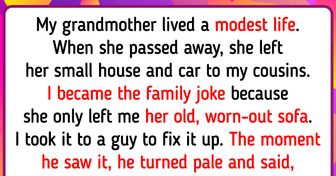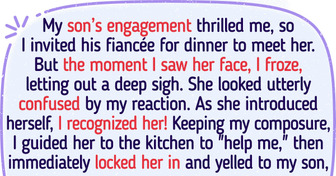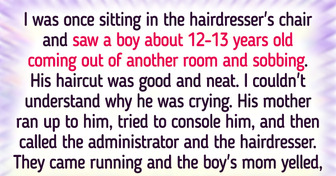16 Riddles That Can Mislead Even the Brightest Mind

Get ready for the AI radio hosts! Enter the spotlight, RadioGPT. This is the groundbreaking AI tool that can effortlessly host radio shows with human-like voices! But should we be concerned about this technological leap? Is it the beginning of the end for human radio hosts?
Let’s explore what it means for the future of broadcasting. Recently, a radio station called Couleur 3 in Switzerland tried out a wild experiment. They let artificial intelligence run their shows for a whole 13 hours! The AI used fancy technology to generate scripts and even cloned the voices of five hosts using its magic.
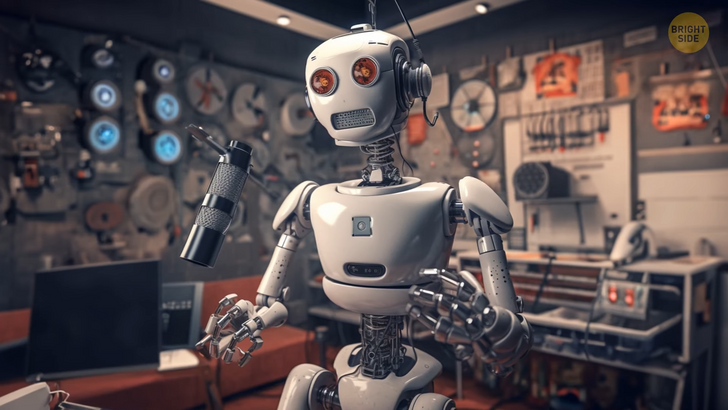
Listeners tuned in to hear AI-generated shows, where the music was picked by algorithms and the voices sounded eerily like the original hosts. But don’t worry, they made sure to remind everyone every 20 minutes that it was all AI doing the talking. Even the reminder itself was an AI! It was spoken by one of the cloned voices. From 6 AM to 7 PM, AI took charge of everything, except for the news updates. For the reminder, a voice said: “Our voice clones and AI are here to unsettle, surprise, and shake you. And for that matter, this text was also written by a robot.”
But people quickly realized they missed the human touch. They sent messages saying things like, “It definitely doesn’t replace humans!” and “Give us back our humans!” Some were amazed by what AI could do, but they realized that creativity, surprise, and humor are things that only humans can bring. And this radio station wasn’t the only one that decided to try artificial intelligence instead of real humans. Imagine a tool that could bring you a fully AI-driven radio host. That’s RadioGPT, the brainchild of Futuri, a pioneering media company. RadioGPT possesses abilities that could revolutionize the radio industry. Here’s a taste of what it can do.

First, trend-spotting. By scanning social media and various news sources, RadioGPT can identify the latest trends and keep you in the know. Second, scriptwriting prowess. With GPT technology, RadioGPT can effortlessly generate engaging scripts that captivate listeners. Third, on-air personalities. With up to three AI “personalities,” RadioGPT can bring scripts to life, mimicking the style of different radio hosts. And finally, RadioGPT is a master of impersonation. It can be trained to flawlessly impersonate a radio station’s host, ensuring a seamless transition to the AI era.
But RadioGPT goes beyond the airwaves. It can create and distribute content across multiple platforms, from your radio station’s blog to Instagram Reels and YouTube Shorts. You might be wondering, but wouldn’t AI radio hosts sound... robotic? To be fair, these AI voices sound incredibly human-like. Though they’re not entirely indistinguishable. What truly sets them apart is their seamless flow. There are no awkward pauses or hesitations like the typical ’ums’ and ’erms’.
On the one hand, it’s great for public performance. But on the other hand, ‘ums’ and ‘erms’ make human speech no longer perfect and therefore... human. Right? Anyway, our perception might be biased since we know that they’re AI voices. So maybe try a little experiment. Launch an AI radio to some friend of yours who doesn’t know about it. Would they suspect something? But before you put on your headphones, let’s delve into the current challenges faced by RadioGPT.
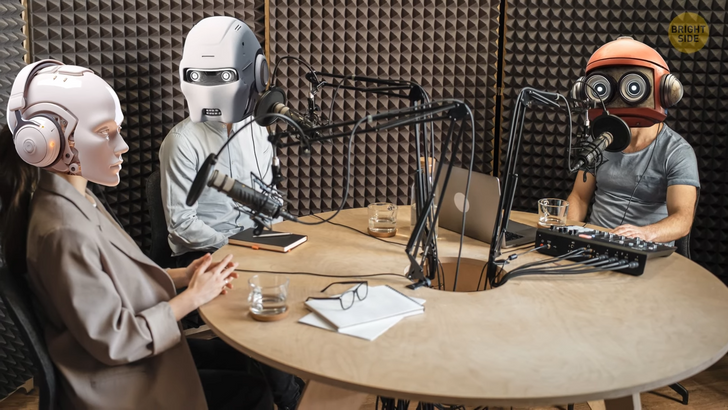
The first problem is pretty obvious. RadioGPT may be missing the essence of what makes radio special. A recent survey showed that more than half of radio listeners tune in to radio to connect with their community or for companionship. We listen to radio and podcasts to hear a real person on the other side, engaging us in conversation.
Many of us have our favorite hosts whom we hold dear. Podcasters, YouTubers, and other broadcasters that we love and treasure as people. Through their shows, we learn about their lives, backgrounds, thoughts, and tastes, fostering a deeply personal bond. Loyal listeners even follow their favorite presenters to new stations, just like Shaun Keaveny’s fans did when he left BBC Radio 6 Music and started his own radio station. So we can’t underestimate the power of this bond.
Futuri, the creators of RadioGPT, are trying to replicate these relationships. They claim that their AI hosts will be like “your fun best friend on the radio, with less drama and more meme references.” Seems like RadioGPT’s AI radio hosts will be able to discuss online content as well. However, unlike human hosts, they won’t be able to share their own experiences of living in the world.

The second problem is misinformation. RadioGPT relies on OpenAI’s powerful GPT-3 language model, the very same technology behind ChatGPT and Bing’s AI chatbot. And while ChatGPT can generate responses that sound human, fact-checking is still not its strong suit. ChatGPT produces answers based on scanning the internet, and unfortunately, those answers are often incorrect. Sadly, the problem of spreading false information also affects broadcasting. If RadioGPT is introduced, it may put the credibility of many radio stations at risk. It also raises some concerns about broadcasting rules and regulations during elections. How will an AI host understand and comply with all the political problems?
Bing’s AI chatbot has faced some huge criticism from its beta testers. This chatbot, surprisingly, showed some jerk-y behavior. Users have shared examples of its angry, obnoxious, or passive-aggressive responses. This just shows that AI radio hosts might be unpredictable. While these traits may seem human-like, they may not be well-received by many radio stations.
And the final problem is: who decides what matters? It looks like RadioGPT tries to prioritize the trends and viral content. This raises some important questions. Should radio hosts only talk about popular or trending topics? If radio were to head in this direction, it would be a huge step back for it. Over the last 50 years, radio has evolved tremendously. Right now, it reflects diverse culture and other aspects of our society. However, if algorithms favor only popular content, radio could become monotonous and lose its uniqueness.

RadioGPT is a powerful tool that can help automate some tasks in radio stations. But it still has a way to go. Right now, it’s only in its experimental phase. While Futuri has given us a glimpse of its potential, we can’t be certain if AI hosts will become the new standard. But watch out, humans!
This new technology won’t just be limited to radio hosts. We’ll have some tough competition from other AI-generated content. Spotify is already in the game with its own AI DJ, so things are heating up. There was also a crazy Twitch channel called Nothing, Forever that was streaming AI-generated episodes of a Seinfeld-like show non-stop. It’s like a never-ending show about nothing. The channel used to run 24/7, and every minute you got new content created by AI using fancy algorithms.
Now, let me tell you, this show was something else. It looked like a weird video game from the ’90s with characters moving in slow motion and walking like they’re in a funny race. It’s unintentionally hilarious! The best part was the humor. The AI tried to do Jerry’s stand-up bits, but they weren’t exactly a hit. And things got even funnier when the laugh track came in at the wrong time. Unfortunately, the channel was banned by Twitch after the AI accidentally generated a controversial joke. But that’s just another proof that AI still needs human oversight.
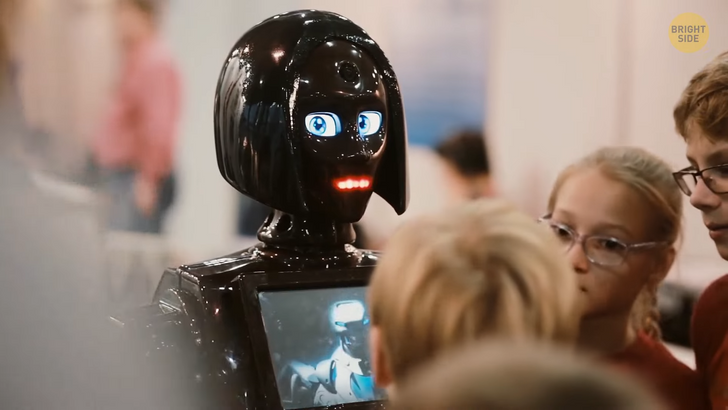
Anyway, as AI-generated content takes over, radio stations need to figure out how to handle the challenges of accessibility, integration, and cost if they want to stay relevant and competitive in this ever-changing media world. It’s a wild ride! However, radio has been around for over 100 years and has proven time and again that it’s here to stay, despite people predicting its downfall.
One of the reasons for its success is the personal connections it creates. People crave high-quality content that comes from real experiences and emotions. So, there’s no need to worry too much. What do you think about this? Would you listen to AI-run radio? Share your opinions with us in the comments!
The experiment was a success because it helped the radio station understand the cool things AI can do, but also its limitations. Looks like AI is great for research and making things more efficient, but it can’t yet replace the magic that humans bring with their creativity and emotions.

